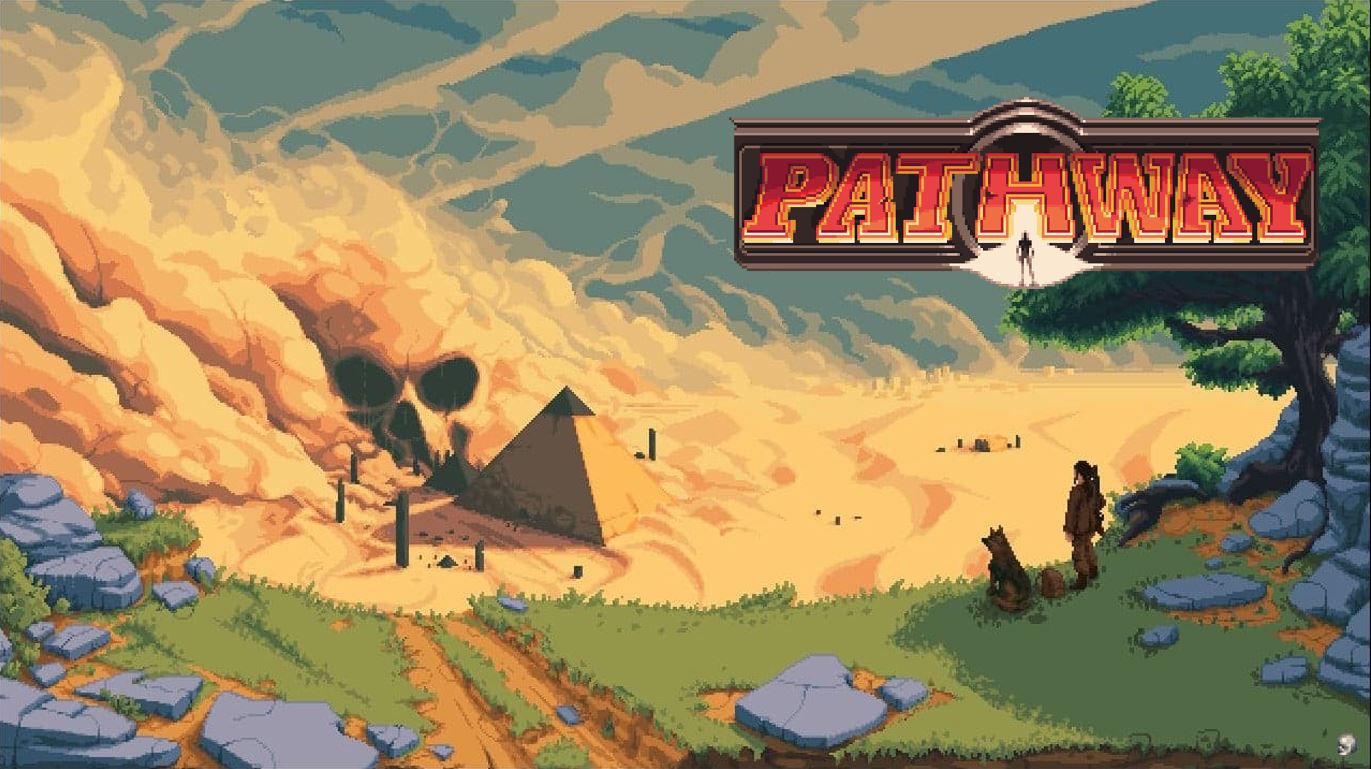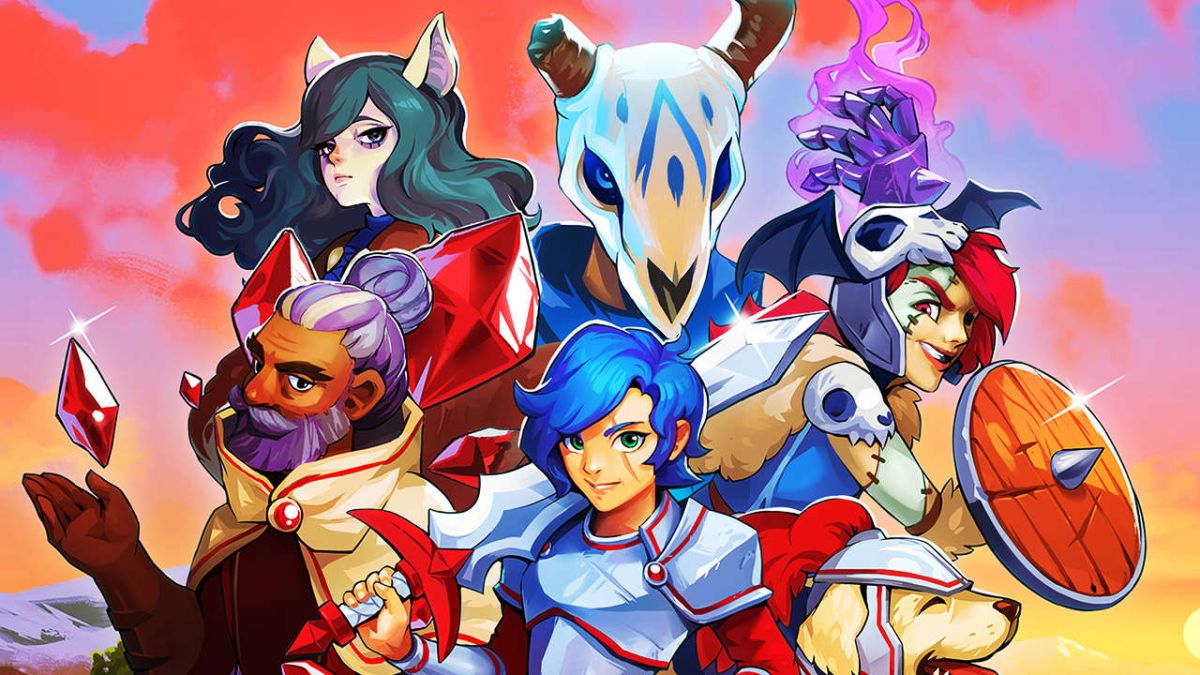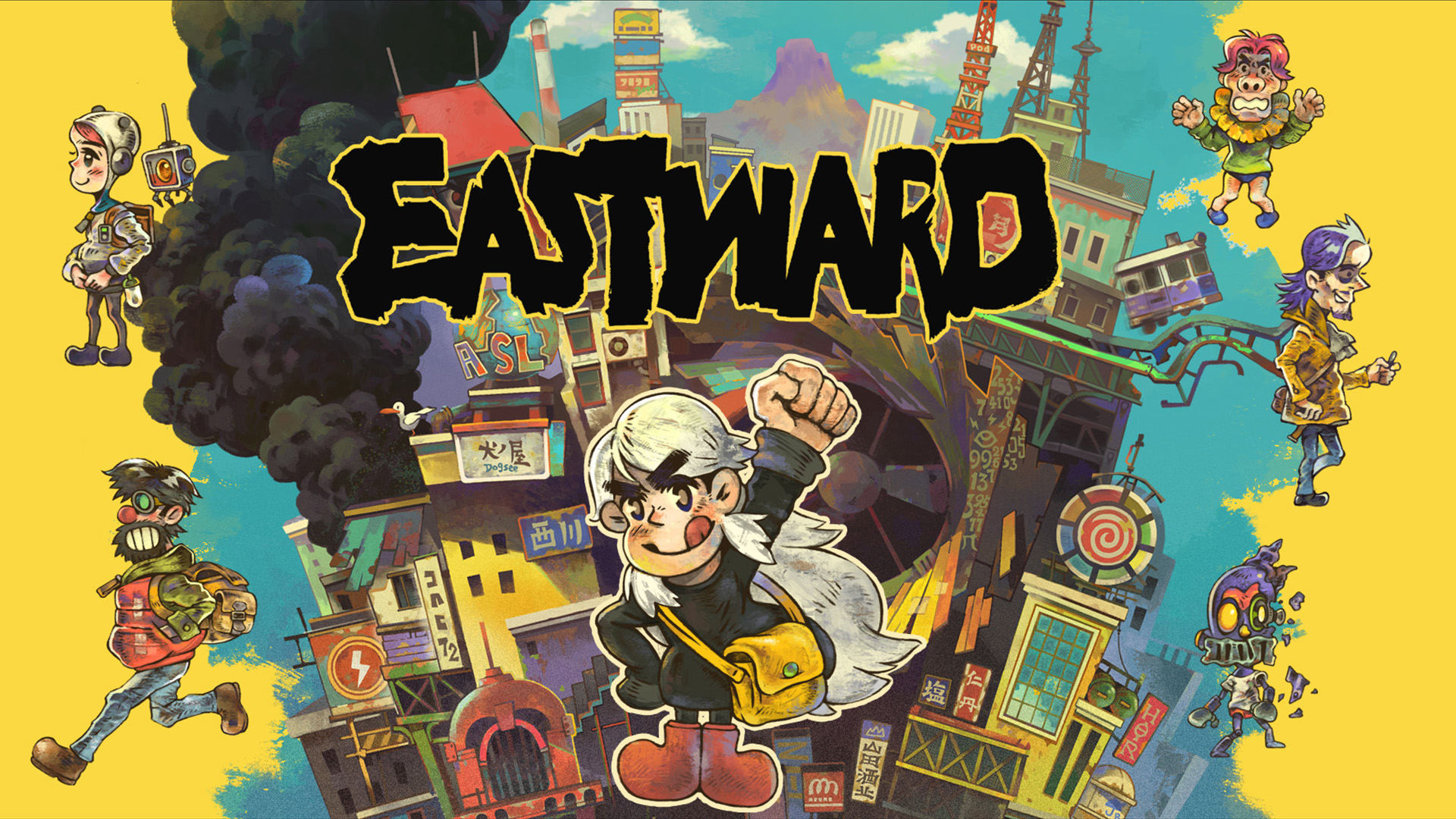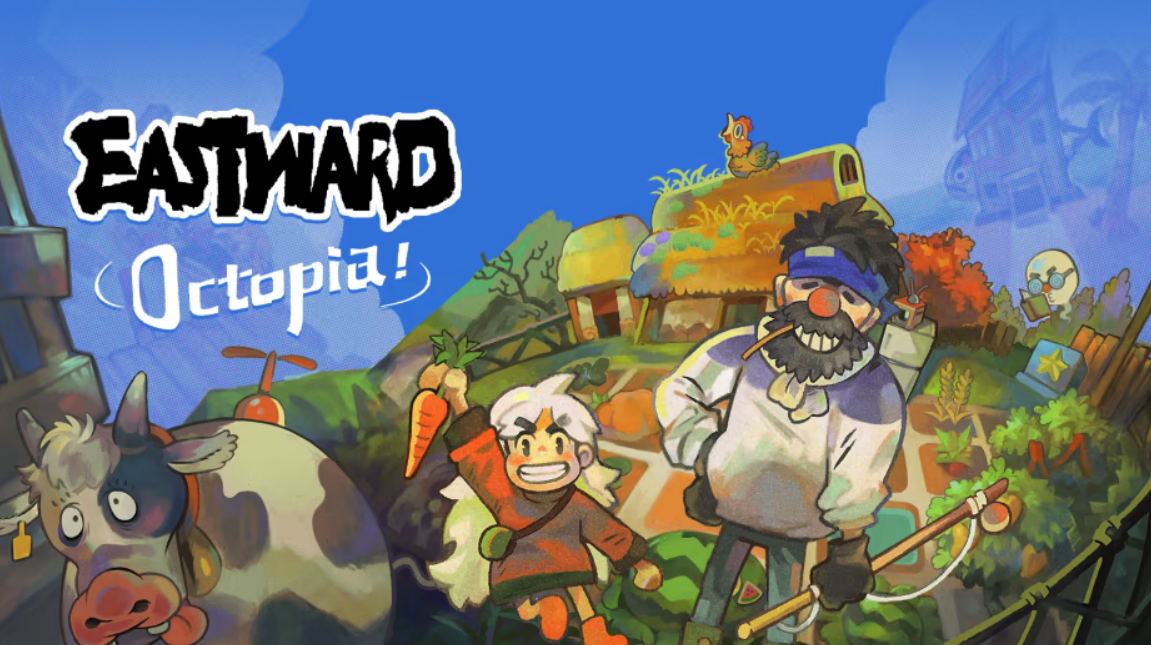Pathway Review (Switch) – Indiana Jones And The Tactics Of Doom
Pathway is a roguelite turn-based tactics adventure, set in the tomb-raiding thirties, with Nazis, and treasure, and pixels. My dear fellow, that sounds just delightful. Someone at Robotality (great company name by the way) must have been playing Uncharted, got themselves into one of Nathan Drake’s famous cover-based gunfights and thought, you know what this needs? More tactics.
Add to that the Nazi-thwarting adventure of your average Indiana Jones film, some gorgeous desert pixelart, and a nice grid and turn-based combat model, and you’ve got Pathway. The title tells you very little until you start, but it describes the procedurally-generated journey that you will take in your little jeep, that’s different every time, full of little nodes, random events, chance-based decisions, and plays out like the lovechild of a board game and a choose-your-own-adventure novel.
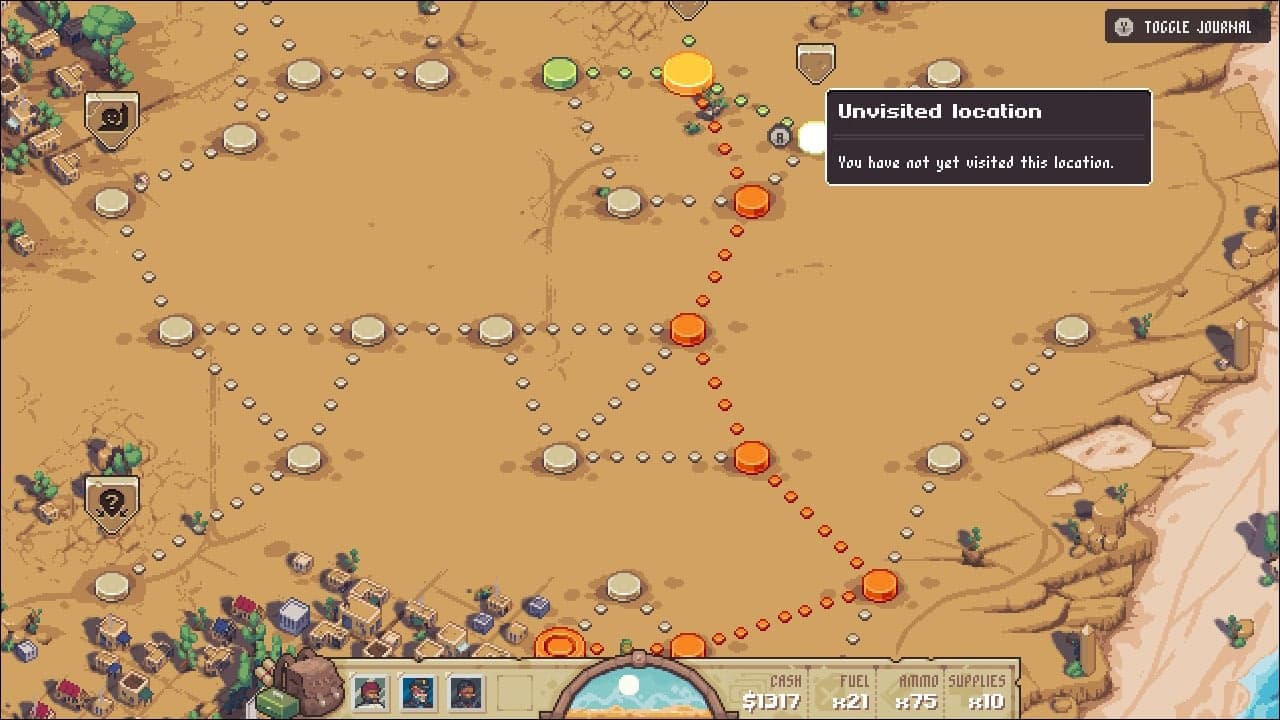
Pathway’s premise is really just a setting and then an instruction to go. A crack team of action movie caricatures set out in pursuit of Nazis in the Middle East. It’s about as bare-bones as that. Eventually there are some slightly higher stakes, but it lacks much in the way of actual plot or consequences. Your small party of 3 or 4 characters are following in the wake of the Nazis as they expand across Palestine and Turkey on the hunt for what I gathered was a vein of Valkyrium that extends across Africa – I assume this is an important rock/crystal, but there’s not much to go on. As is clearly the case with videogames, zombies and Nazis are somehow inextricably linked in the collective subconscious, and to this end, not long into the second mission you will start finding zombies and strange cultists popping up in battle alongside the Nazis.
There are five missions, five different journeys that you’ll need to complete, each getting progressively harder and needing more care and attention to complete. It sounds fun, but the trouble is most of the minute-to-minute narrative is really dull. Click a node on a map and your little car will drive there, and a popup will spring up with a paragraph synopsis of what happened at that point. You don’t actually play most of them, which was part of the reason I compared it to a choose-your-own-adventure. Sometimes you make a choice to investigate something, and a bit more paragraph will pop up to be read. It’s little tiny episodes, but most are very pedestrian, concerned primarily with random events like a fuel leak, or a barely interesting temple to raid. The interesting ones might result in an ambush, or a fight, at which point you’ll launch into combat.
If you go in expecting the bulk of the game narrative to be all the parts of an Indiana Jones adventure that don’t make the cut for the movie, you’d be about there. That scene where Indy had to fix a tyre, or that one where he bought fuel for his truck, or that one where he ate beans over a campfire stove, or that one where he saw something interesting but ultimately decided to just get back in the car.
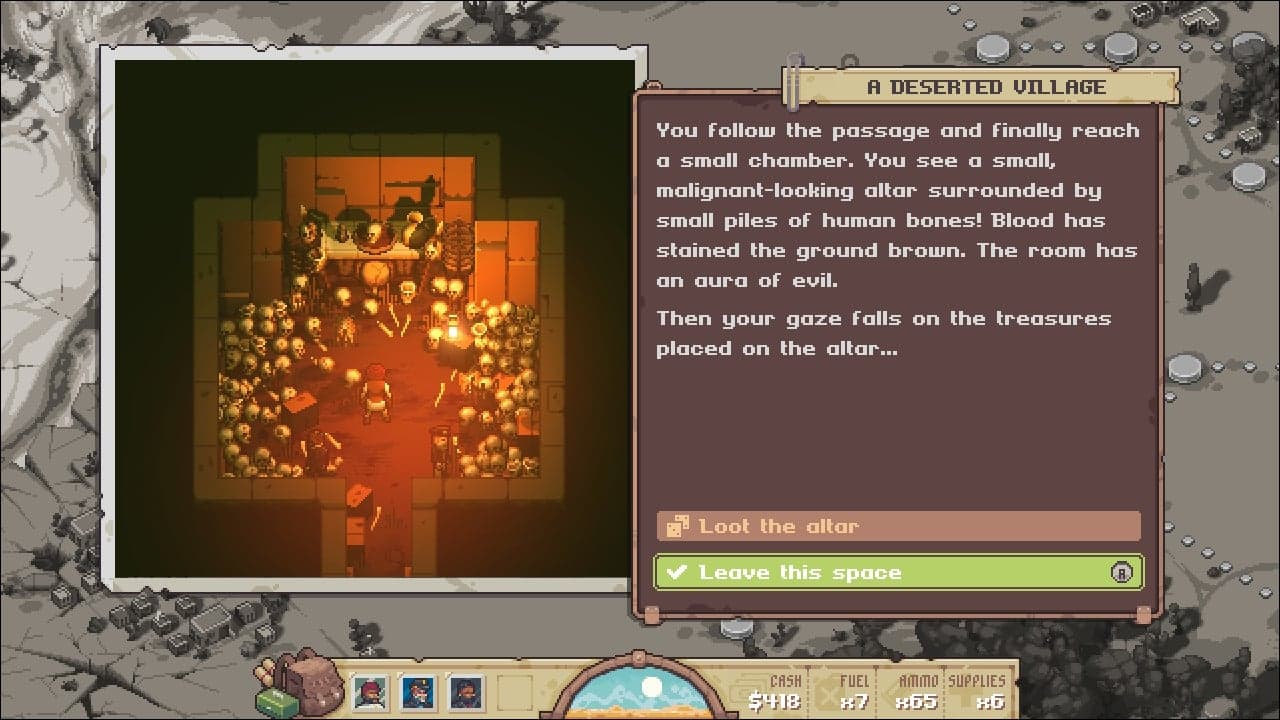
Gameplay in Pathway follows a roguelite formula. The journey map has the same basic links in it each run, but the random events and battles that will occur will be different every time. You need enough fuel to get from one side of the map to the other, and reach your final destination, but along the way you could get ambushed, bitten by a tarantula, spring a fuel leak, camp and heal up, or raid some tombs. You also fight and gain levels and skills from combat that will carry over to the next run.
I did find it a little strange that you can tactically retreat/withdraw from almost every single random event or encounter on the journey screens, except the final battle. If you’ve levelled up your characters on a few previous runs, then when you actually want to aim for the end and finish the level once and for all, you can often do so without fighting anyone at all until the boss.
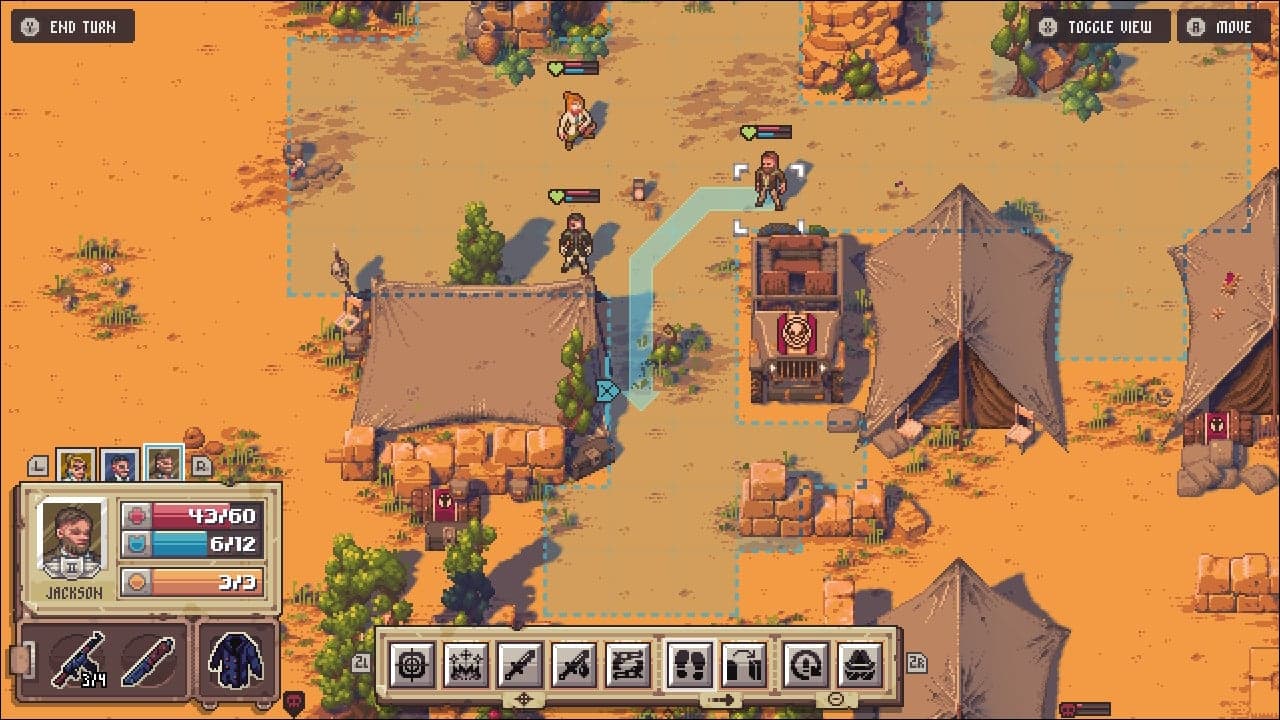
I am a moderate fan of turn-based grid tactics games like Disgaea or Final Fantasy Tactics (enough that I often get swayed by pretty artwork), a more pronounced fan of turn-based freeform tactics titles like XCOM and Gears Tactics, and a massive fan of realtime strategy and tactics like Desperados III or Command and Conquer. That’s my credentials going in.
Pathway is the first – a grid-based turn-based tactics systems – but with some of the more freeform ideas we’ve seen in the last decade. You can pick from a few dozen characters to team up for the journey, but they are just avatars with skills, none has an ounce of personality of any kind. However it’s easy to find a favourite avatar when they have a certain skill you gravitate to using on the battlefield. I really liked Miguel with his Anti-fascist skill – this gives you 20% extra damage against fascists – and what are Nazis? So basically he’s stronger than everyone else.
The battles are handled well, but there’s little personality to them. This is the trouble with the procedural generation aspect; Proceedings generally just boil down to yet another fight against some cookie-cutter Nazis, dogs or zombies. Battles and the story that breaks them up will quickly fade into each other and you’ll start losing interest.
Measure your ability to fall for this game on how much you enjoy turn-based tactics combat. If that’s you to a tee, then Pathway has many hours of content that may suit you as you build a stronger team, work through many strategic situations and lots of well-implemented modern tactical abilities, such as retaliations and covering areas for the next turn. However if for any reason you are more casual about tactics games in general or turn-based ones, this game has so little else to focus on that I’d have to really warn you away. At the same time anyone who IS a fan of grid-based tactics games will know there are quirkier and more interesting ones out there. Pathway is notable because of it being a roguelite, not because it brings anything new to the tactics genre.
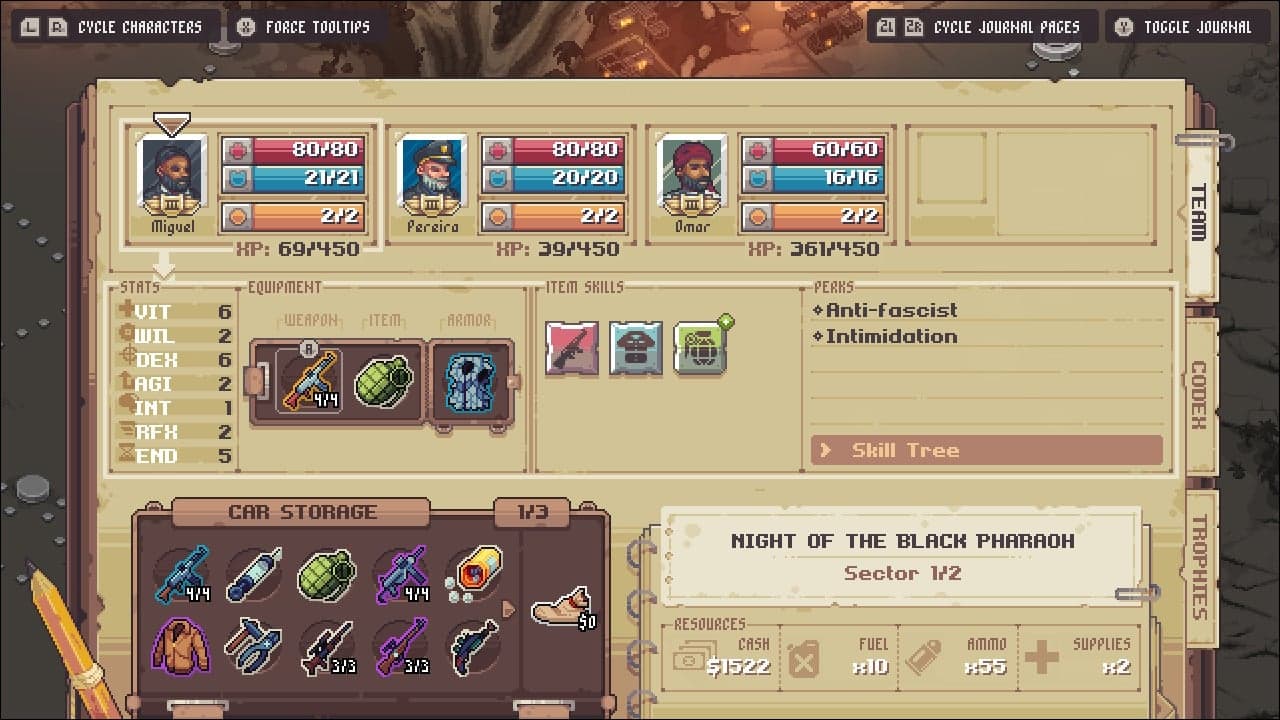
Graphically I was swayed to try the game out based on its lush pixelart. You can see from the screenshots that the areas are nicely put together if a little repetitive, the lighting is pleasant and it’s going to appeal to pixelart lovers. Though the pixelart on the combat maps is pleasing on the eye, it’s not all that clear. By adopting a face-on angle, instead of an isometric angle for example, it can often be difficult to read where a path really lies, whether you are in cover, or whether you have line of sight. Later levels add topography to this, and working out if there are holes or obstacles or you are completely stuck is fiddly and distracting with the grid constantly obscured.
I enjoyed the handful of musical tracks on display. Some have a very Indiana Jones-esque flourish, a little Lawrence of Arabia, good desert-epic sounding themes. They do get a little repetitive, but for the most part really establish a good sense of location. Guns and skills all sound crunchy and strong even on a little handheld screen.
Pathway – Nice Touches
- Dog-Friendly Mode – no dogs can be harmed with this mode enabled. If you shoot a dog they won’t even yelp in pain, and they just warp away rather than die.
- You know when an adventurer travels from country to country in a film, they overlay a map and draw the path of the flight in red. In Pathway that’s the loading screen, and the loading bar is the line crossing the map and reaching its destination.
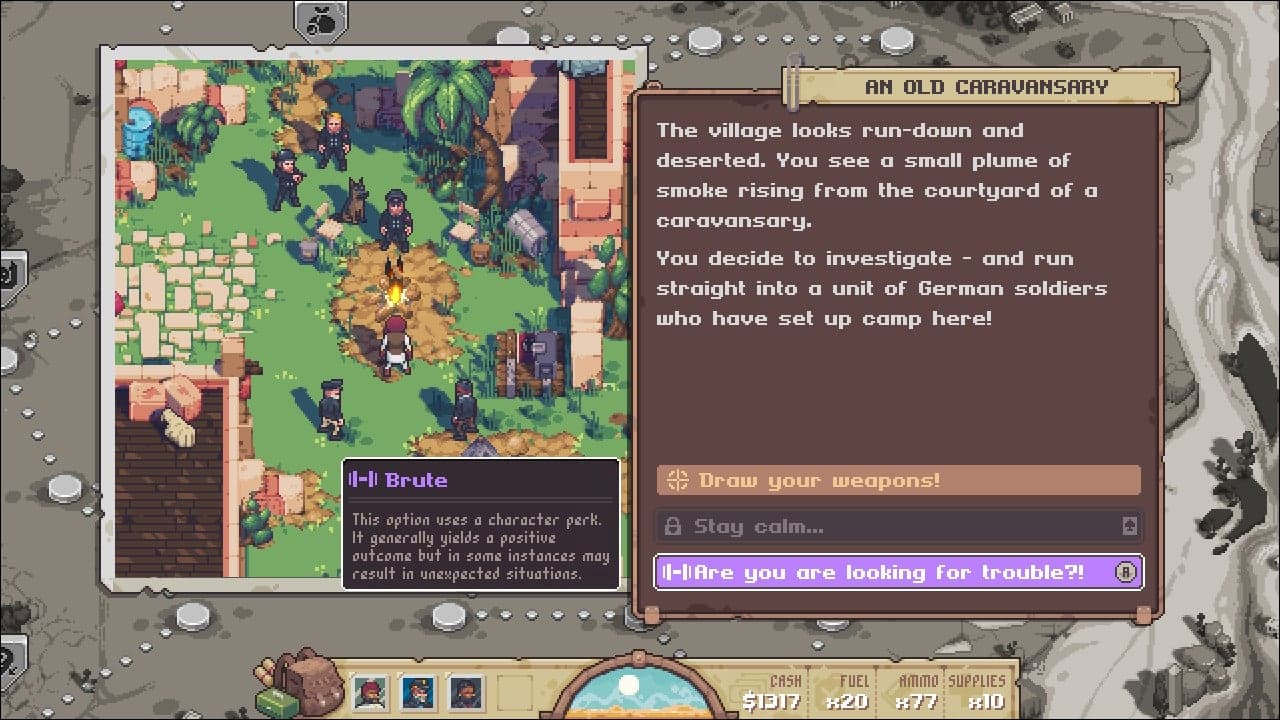
Pathway has the ingredients for an interesting and deep grid-based tactics rogue-lite. However maybe I’ve been spoiled by Hades, Returnal and Children of Morta. I now want and expect a far more engaging narrative from my roguelites. Characters with personalities, actual conversations, meaningful dialogue building as you play, and a narrative that’s tied to the mechanic of dying over and over. Pathway ties none of its bare-bones premise to its roguelite mechanic and that’s a shame.
Combat-wise Pathway will be familiar territory to most grid tactics fans, and will probably put off most casual players simply by virtue of this mechanic alone. It is modern, has cross-turn moves and retaliations that can make for quality battles, but most fans have seen everything here before. The obscured maps and generic enemies take much of the fun out of it after a handful of runs.
Pathway is a serviceable roguelite built around the fun idea of tailing Nazis across the desert in a jeep. However it lacks personality, character and narrative worth getting invested in. Its combat will satisfy for a time but quickly becomes too familiar for genre fans, and too dull for anyone else to jump aboard.

Pathway is now available on Nintendo Switch (review platform) and has been available on PC via Steam for two years.
Developer: Robotality
Publisher: Chucklefish
Disclaimer: In order to complete this preview, we were provided with a promotional copy of the game. For our full review policy, please go here.
If you enjoyed this article or any more of our content, please consider our Patreon.
Make sure to follow Finger Guns on our social channels – Twitter, Facebook, Twitch, Spotify or Apple Podcasts – to keep up to date on our news, reviews and features
